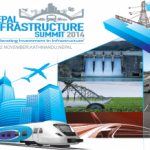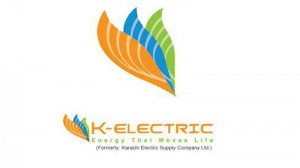NEPAL > Snippet: Nepal Infrastructure Summit 2014
Source: Kantipur Daily
KATHMANDU, NOV 13 – Nepal Rastra Bank Governor Yuba Raj Khatiwada said on Wednesday that the country’s private sector could generate resources through public limited companies to invest in the infrastructure sector.
Since the country’s private sector has been doing business by establishing mostly private limited companies, they have not been able to generate low-cost resources from the public. They usually depend on bank loans for capital which are usually expensive. Except for banks and financial institutions (BFIs) and insurance companies, and lately hydropower companies, most of the successful companies in the production business have not gone public. BFIs and insurance companies are required to be public limited companies by law.
Addressing a session entitled Investment Climate in Nepal at the Nepal Infrastructure Summit 2014 organised by the Confederation of Nepalese Industries (CNI), Khatiwada said that people would not trust the private sector as long as it seeks to collect funds through private companies. “Things can change if you establish a public limited company,” Khatiwada said.
Believing that lots of resources could be collected within the country to invest in the infrastructure sector, International Finance Corporation (IFC), the private sector arm of the World Bank Group, and the Asian Development Bank have obtained the government’s okay to issue local currency bonds worth $1 billion.
However, CNI Vice-President Anuj Agrawal said that the country’s private sector lacked expertise in mega projects in which they had recently become involved. Nepal’s private sector started investing in hydropower only after 2006 when it had not developed even a single road project.
Exemplifying the success achieved by the country’s private sector in cement manufacturing, tourism and hydropower, among others, Agrawal said that Nepali developers were slowly strengthening their capabilities.
Meanwhile, secretary at the Ministry of Urban Development Arjun Kumar Karki said that attracting foreign direct investment (FDI) in the infrastructure sector was a must as it was capital intensive. “We have a capital deficit, and we should create a system where foreign investors do not have to run from table to table of government offices,” he said.
Karki also urged quick decisions from the political leadership and a culture of encouraging bureaucrats who can make decisions quickly.
Former Indian ambassador to Nepal Rakesh Sood was impressed by the latest development in the country’s hydropower sector. “If the encouraging development in the hydro sector continues, Nepal will be out of load-shedding in the coming 18 months,” Sood said.
Among the latest developments, Nepal and India have signed a power trade agreement (PTA) enabling the two countries to trade power like any other commodity, and Investment Board Nepal and GMR Company of India have signed a project development agreement (PDA) for the 900 MW Upper Karnali Hydropower Project.
Sood said that Nepal needed to learn from past mistakes and work on building confidence among investors.
Meanwhile, speaking at another session entitled Sectoral Reform post PDA and PTA, Energy Secretary Rajendra Kishore Kshatri said that the government was mulling unbundling the Nepal Electricity Authority (NEA) as part of sectoral reform and establishing two separate entities to look after national transmission and grid connectivity and trade power in the near future.
Kshatri added that the Ministry of Energy (MoE) would be taking the Electricity Act and the Regulatory Commission Act to Parliament soon, and that once they were enforced, things would start to change.
Similarly, NEA Deputy Managing Director Sher Singh Bhat said that the government immediately needed to reach a decision to mitigate issues like land acquisition, write offs, forest clearance and political force majeure that would surface in the days to come.
“Since Nepal has signed a PDA with GMR for the construction of the Upper Karnali Hydro Project, the government may have to pay compensation if the necessary steps are not taken on time,” Bhat said. He added that there was a need for a regulatory mechanism and open access to the transmission system to produce better results in electricity trading.
Likewise, President of the Independent Power Producers’ Association Nepal (Ippan) Khadga Bisht said the formulation of an amended Electricity Act and Regulation Commission Act was a must to guide sectoral reform in the energy sector.
“India and Nepal embarked on sectoral reform in the 1990s. Since then, India has made significant progress while Nepal is stuck in the guidelines formed in 1992,” he said. While India is talking about 1,200 kV transmission lines today, Nepal is talking about 400 kV and has been stuck at just 132 kV for a long time now, he added.





